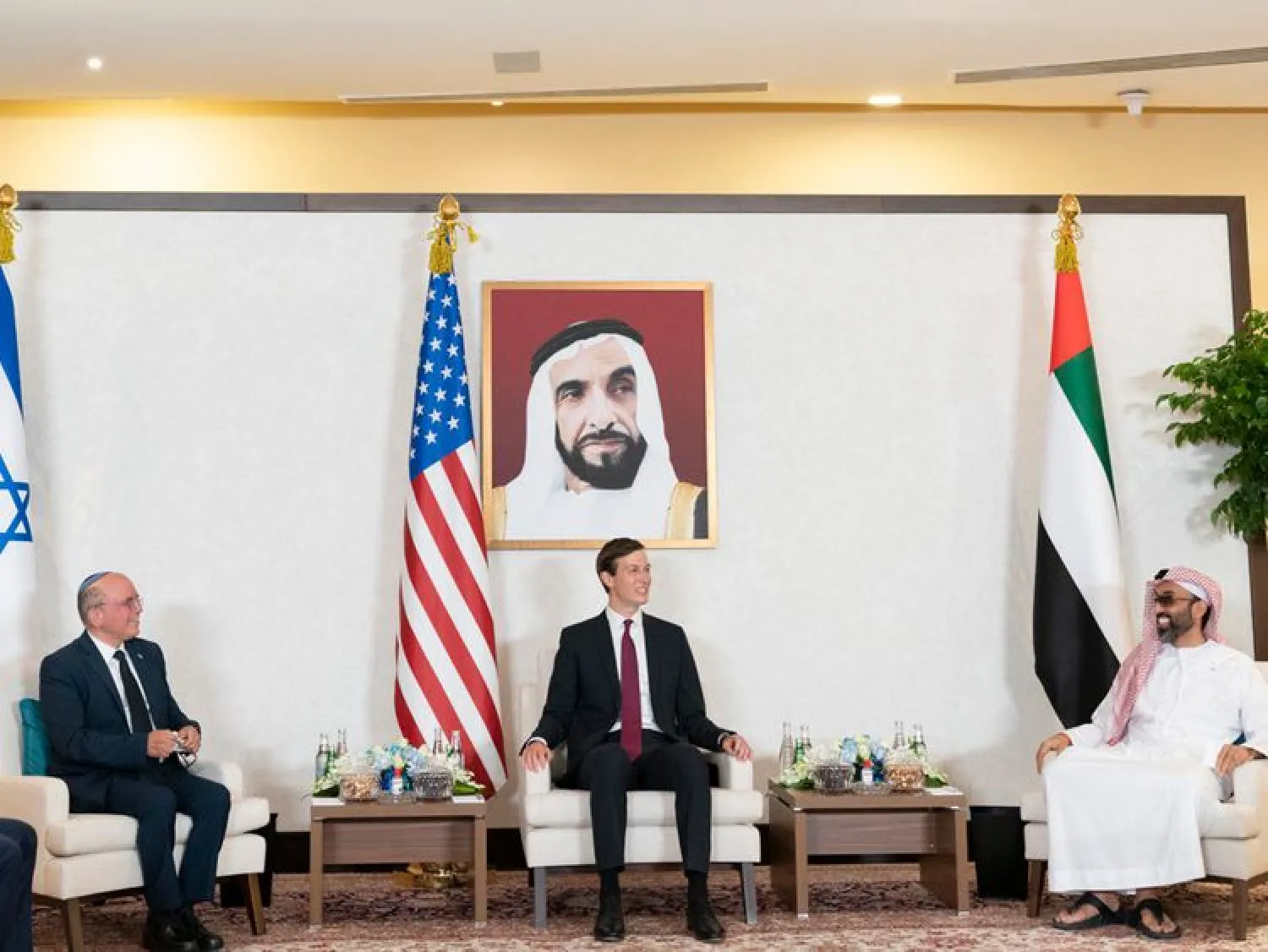The UAE, US and Israel have reaffirmed that the accord reached by the three nations on August 13 is “a courageous step towards a more stable, integrated and prosperous Middle East.”
The statement said that the agreement, known as "Abraham Agreement", will provide a new thinking and invert traditional thinking about the way to address the region’s problems and challenges, "focusing on pragmatic steps that have tangible, practical outcomes. It carries with it the promise of new bridges that will serve to de-escalate existing conflicts and prevent future conflicts."
This came in a tripartite statement issued by the three nations during the current visit to the UAE by a top US-Israeli delegation, led by Jared Kushner, Senior Adviser to US President Donald Trump.
"And it comes at the right time. Over the last decade we have seen a marked increase in war, destruction, and dislocation, and a growing demographic shift towards a younger population," the statement added.
The statement stressed that this accord has initiated a historic breakthrough in normalizing ties between Israel and the UAE and has led to Israel’s decision to halt plans to extend its sovereignty.
On Saturday, the UAE formally abolished its 40-year boycott law, thereby allowing UAE companies and individuals to trade directly with Israel.
Israeli and Emirati ministers, from foreign affairs to food security, have initiated their first official discussions on continuing and strengthening cooperation.
"We have already opened phone lines between the two countries and, as we speak, Israelis and Emiratis are collaborating on research we hope will lead to a breakthrough in the treatment of COVID-19," the statement noted.
"Today we have witnessed the first commercial flight by Israel’s El Al airlines to the UAE, carrying both Israeli officials and media. Tomorrow, Emirati, Israeli and American officials will begin discussing bilateral technical cooperation in seven key areas: investment, finance, health, the civilian space program, civil aviation, foreign policy and diplomatic affairs, and tourism and culture. The result will be broad cooperation between two of the region’s most innovative and dynamic economies."
The UAE and Israel also expressed their gratitude for the overwhelmingly positive response to this historic accord from governments around the world, especially President Donald Trump for his leadership and to his administration for the critical role it has played in achieving this diplomatic breakthrough.
"They are also greatly encouraged by the broad bipartisan support for this breakthrough from the United States Congress."
The statement expressed hope that in the near future collective efforts will set in motion a cascade of positive changes, both large and small, that will put our respective peoples and the wider region on a solid path to security, prosperity, and peace.
Sheikh Tahnoun bin Zayed Al Nahyan, National Security Adviser, on Monday received in Abu Dhabi the joint US-Israeli delegation visiting the UAE.
The delegation includes US National Security Adviser Robert O’Brien and Meir Ben-Shabbat, National Security Adviser and head of the Israeli National Security Council.
During the meeting, Sheikh Tahnoun welcomed the delegation, wishing them a successful and mutually beneficial visit with representatives of various sectors.
The meeting also addressed the trajectory of relations between the UAE and Israel and ways to enhance future collaboration in various fields to the benefit of both countries and in support of peace, stability, cooperation, and development in the region, WAM reported.









